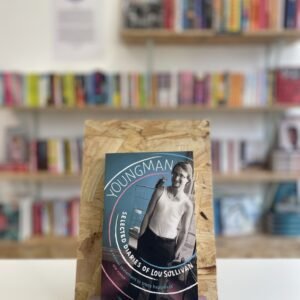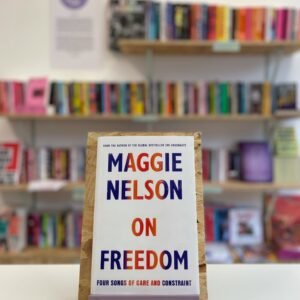| Weight | 154 g |
|---|
History of Violence – Édouard Louis
£9.99
Mae History of Violence yn nofel hunangofiannol yr awdur Ffrenging poblogaidd Édouard Louis am oroesi ymosodiad rhywiol a delio ag anhwylder straen wedi trawma (PTSD).
Ar Noswyl Nadolig 2012, ym Mharis, cafodd y nofelydd Édouard Louis ei threisio a bu bron iddo gael ei lofruddio gan ddyn yr oedd newydd ei gwrdd. Chwalodd hyn Lous; fe’i gwnaeth yn ddieithryn iddo’i hun a’i anfon yn ôl i’r pentref, y teulu, a’r gorffennol yr oedd wedi ei adael ar ôl.
Yn werthwr gorau yn Ffrainc, mae History of Violence yn nofel ffeithiol fer yn nhraddodiad In Cold Blood gan Truman Capote, ond gyda’r dioddefwr yn destun. Gan symud yn ddi-dor ac yn hypnotig rhwng y gorffennol a’r presennol, rhwng llais Louis a llais prif cymeriad dychmygol, mae gan History of Violence chwilfrydedd treiddgar, di-ben-draw’r cofiant ar ei orau. Mae’n cofnodi nid yn unig hiliaeth achlysurol a homoffobia cymdeithas Ffrainc ond hefyd eu heffeithiau cynnil ar gariadon, brodyr a chwiorydd, gwŷr a gwragedd. Mae’n gam mawr ymlaen i lenor ifanc y mae ei graffter, ei sgil, a’i ddyfnder heb ei ail gan unrhyw nofelydd o’i genhedlaeth, yn Ffrangeg neu Saesneg.
History of Violence is international bestselling French author Edouard Louis’s autobiographical novel about surviving a shocking sexual assault and coping with the post-traumatic stress disorder of its aftermath.
On Christmas Eve 2012, in Paris, the novelist Édouard Louis was raped and almost murdered by a man he had just met. This act of violence left Louis shattered; its aftermath made him a stranger to himself and sent him back to the village, the family, and the past he had sworn to leave behind.
A bestseller in France, History of Violence is a short nonfiction novel in the tradition of Truman Capote’s In Cold Blood, but with the victim as its subject. Moving seamlessly and hypnotically between past and present, between Louis’s voice and the voice of an imagined narrator, History of Violence has the exactness of a police report and the searching, unflinching curiosity of memoir at its best. It records not only the casual racism and homophobia of French society but also their subtle effects on lovers, brothers and sisters, husbands and wives. It represents a great step forward for a young writer whose acuity, skill, and depth are unmatched by any novelist of his generation, in French or English.





